
Volume Four, Issue Seven
Food Aid Reform is Focus of President's 2014 Budget
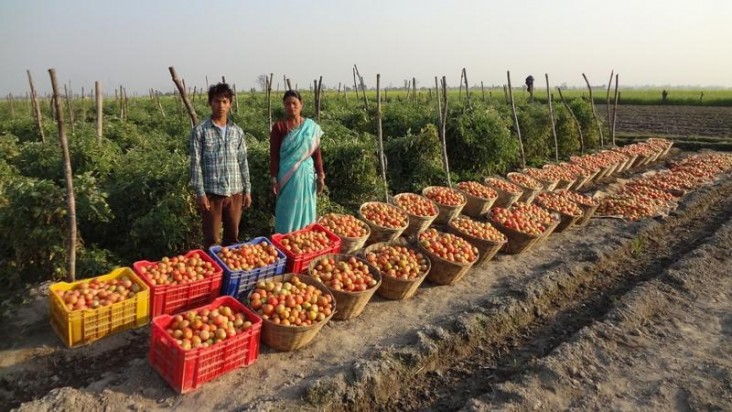
On Wednesday, the Obama administration released its 2014 budget proposal, which will provide the resources development experts need to address complex threats to U.S. national security, promote human progress, and prevent and respond to disasters and conflicts. Read the executive summary and fact sheets about the $20.4 billion USAID budget here.
The President proposed important reforms to the food aid budget -- a program called Food For Peace - that will allow the U.S. to feed four million more hungry children every year with the same resource and maintain our leadership as the world's greatest force for good. .
USAID Administrator Rajiv Shah spoke at the Center for Strategic & International Studies on Wednesday about the reforms. His speech was followed by a distinguished panel of experts who discussed the future of food assistance. View his remarks here. To read more about the specifics of the food aid reforms, read here.
Reform and Accountability
On Thursday, Administrator Shah spoke at OxFam America's event "How U.S. Development Policy Reforms are Working." Vice President for Policy and Campaigns Paul O'Brien opened the event by sharing his views on how U.S. foreign aid has reformed over the past 4-5 years, to include the work through USAID Forward. He said that Oxfam believes USAID is on the right path and is supportive of the reforms, particularly as they relate to increased alignment with host country priorities. Oxfam shared detailed findings from a survey they conducted with 257 local leaders in 7 countries in which they found that 83 percent of local leaders believe the US government is a better partner than it was 4-5 years ago. The survey further showed that while USAID Forward and other reforms are working, there is still much to be done to ensure progress continues and the reforms take root. Administrator Shah provided closing remarks thanking Oxfam for doing this research and providing data to help us ensure we continue to make evidence-based decisions to provide the best possible development outcomes.
Here is a video of the event, and the summary the report's finding that were presented at the event.
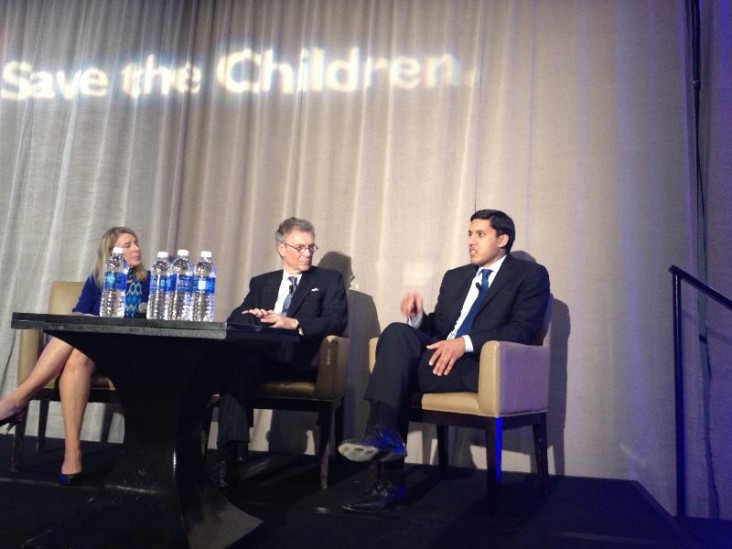
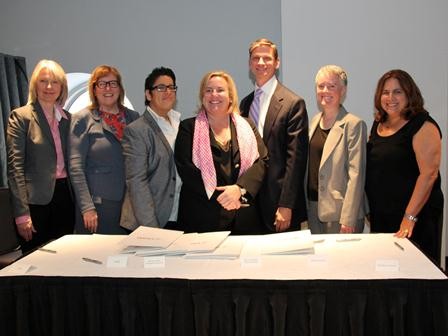
Save the Children Advocacy Summit in D.C.
Hundreds of child advocates joined Save the Children for a summit in Washington April 10-11, including Administrator Shah.
He partnered with former Senate Majority Leader Tom Daschle for a "fireside chat" on health and development moderated by Save the Children President and CEO Carolyn Miles. Shah talked about the administration's commitment to ending preventable child deaths. He linked this goal to the administration's food aid reform, particularly how high-quality, high-nutrition foods during the first 1,000 days of life -- from birth through age 2 -- can make a difference.
Event Marks New LGBT Partnership
On April 8, USAID celebrated its achievements in directing and leveraging foreign assistance to further lesbian, gay, bisexual, and transgender (LGBT) equality in emerging markets and developing countries by announcing a new LGBT Global Development Partnership.
An $11 million public-private partnership between the Swedish International Development Cooperation Agency (Sida), the Astraea Lesbian Foundation for Justice, the Gay & Lesbian Victory Institute (GLVI), the Williams Institute, and Olivia Companies. Starting its work in Ecuador, Honduras, Guatemala, and expanding to even more countries, the partnership will strengthen the capacity of LGBT civil society organizations, train LGBT individuals to participate more fully in democratic processes, and undertake research on the economic impact of discrimination against LGBT individuals. This partnership leverages the financial resources and skills of each partner to further inclusive development and increase respect for the human rights of LGBT people around the world. Learn more in a blog post by Chief Innovation Officer Maura O'Neill entitled "Accelerating Progress with LGBT Global Development Partnership".
CTIP White House Events and Field Guide Release
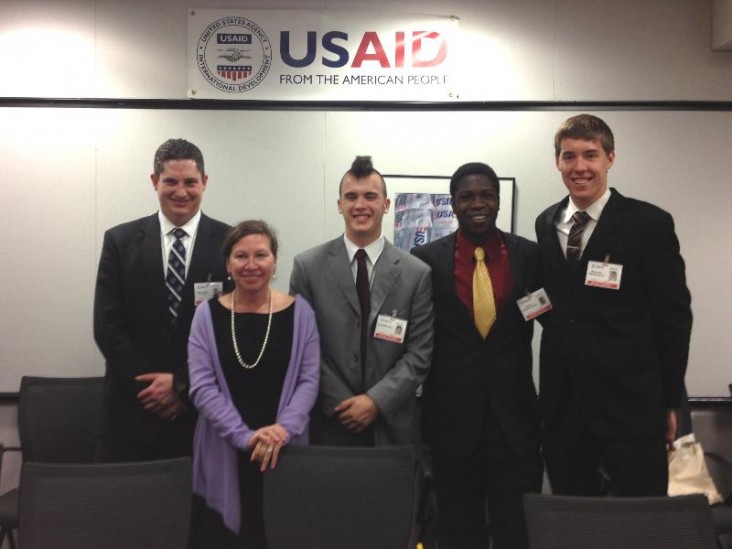
On April 9, the White House Forum to Combat Human Trafficking brought together advocates, academics, business leaders, faith leaders, technology community leaders, law enforcement, and government leaders to discuss strategies for countering trafficking in persons (C-TIP). The White House's Chief Technology Officer Todd Park recognized USAID's C-TIPCampus Challenge Tech Contest winners during his remarks in the "technology and trafficking" portion of the forum and applauded them for their commitment to end human trafficking.
Later that day, Administrator Shah spoke at a reception at the White House honoring the President's Advisory Council on Faith-based and Neighborhood Partnerships about USAID's commitment to combating trafficking in mission countries. He also announced the release of USAID's C-TIP Field Guide, which provides practical guidance on implementing C-TIP activities in the field and integrating them into larger development programs. The guide also helps educate USAID staff, partners and the public about human trafficking more broadly.
This week, USAID hosted four of the winners of its C-TIP Campus Challenge from Virginia Tech and Georgetown University. Winners attended White House-hosted C-TIP events and had multiple opportunities to discuss their winning concepts with USAID and its partners, to include a meeting with Deputy Administrator Steinberg and the USAID-funded MTV Exit foundation.
Land Rights Conference Held at World Bank
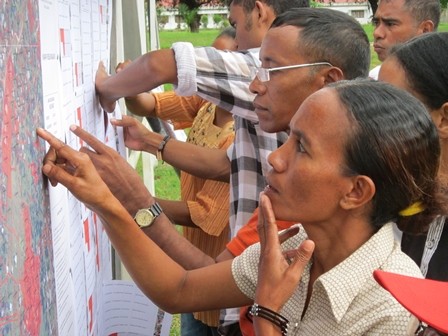
This week, USAID presented research on best practices, convened policy coordination meetings, and supported dissemination of key themes at the 2013 World Bank Annual Conference on Land and Poverty. The conference brought together more than 700 people from civil society, foundations, donors, governments, and academia to underscore that land rights are a central and vitally important global development issue.
The importance of land rights is reinforced by the U.N. Committee on World Food Security's adoption of the Voluntary Guidelines on the Responsible Governance of Tenure of Land, Fisheries and Forests and the ongoing negotiations on the Principles for Responsible Agricultural Investment. The G8 and G20 are paying close attention to this topic as well. Working alongside G8 partners, the private sector and host governments launched the New Alliance for Africa at last year's G8 meetings. The alliance initially will focus on improving agricultural productivity in six countries: Ghana, Tanzania, Ethiopia, Mozambique, Cote d'Ivoire and Burkina Faso. In each of these countries, the U.S. Government is working with host governments and stakeholders to strengthen resource governance.
USAID and the Millennium Challenge Corporation currently support programs enhancing property rights for women and men in more than 30 countries. Specifically, these programs support: country-driven solutions that help formalize or bring other legal recognition to tenure rights; training and capacity building for land administration officials; land use planning; programs that address gender inequities; and increased transparency and accountability, which are key to land governance and economic growth.
USAID In the News
Oxfam's Paul O'Brien welcomed the proposals, telling the Wall Street Journal: "The Obama administration has taken an important step towards long overdue reforms to bring food aid into the 21st century. ... This president's proposal will get food to more hungry people faster, cheaper and more efficiently. Congress should pass them expeditiously."
The four-year public-private partnership between USAID and Olivia Cruises, UCLA's Williams Institute, the Astraea Lesbian Foundation for Justice, the Gay & Lesbian Victory Institute and the Swedish International Development Cooperation Agency "will work with local LGBT groups to provide leadership training, research and other help, lending the imprimatur of the U.S. government to people who in many countries are outcast and vulnerable, "The San Francisco Chronicle reports.
Have you Seen our Blog?
Check out the Impact Blog to stay updated on the latest information about USAID programs in Washington and around the world. Read stories from the field, hear from development experts, and view weekly photos and videos of development in action. You can also join the conversation on social media!








Comment
Make a general inquiry or suggest an improvement.